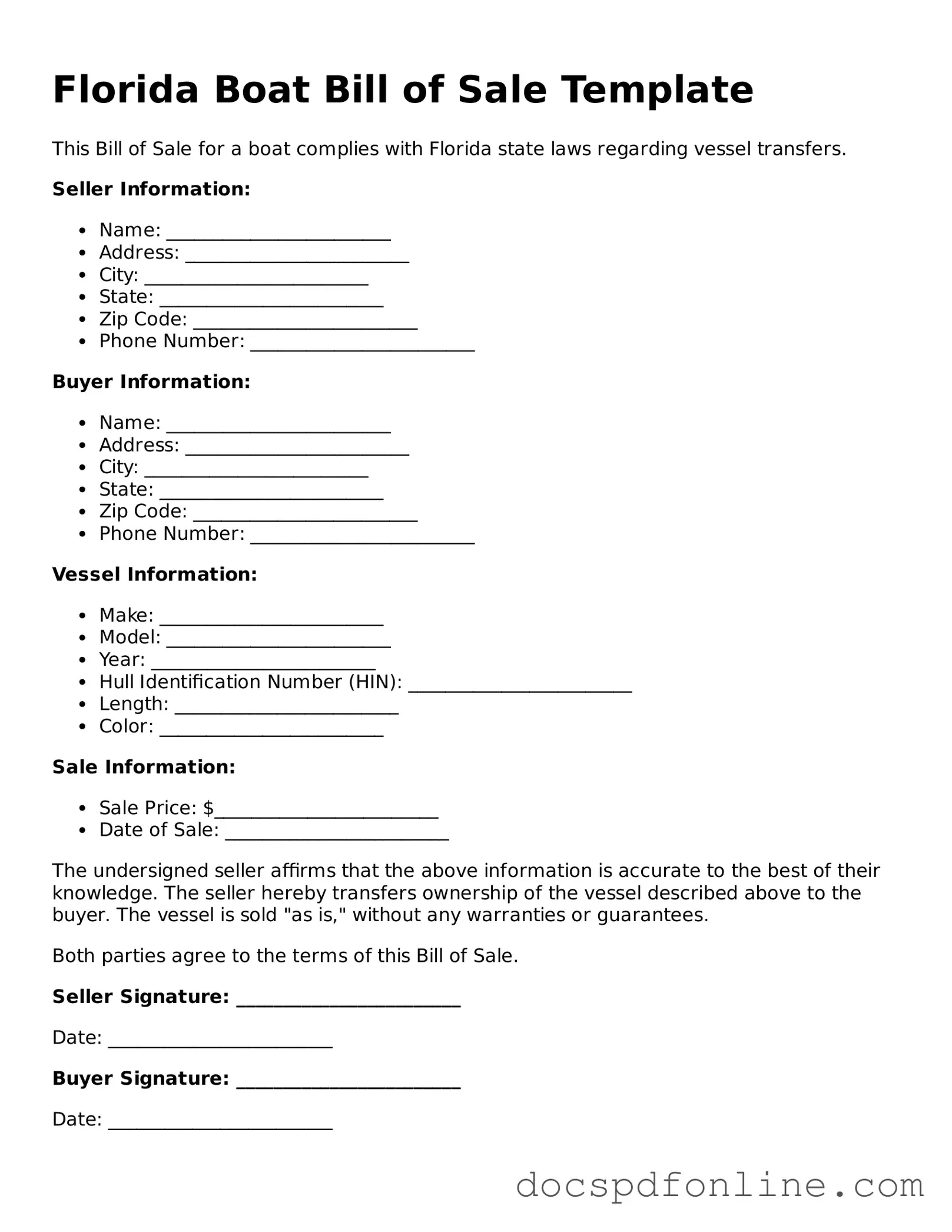Legal Boat Bill of Sale Template for Florida
The Florida Boat Bill of Sale is a crucial document that serves as proof of the transfer of ownership for a boat in the state of Florida. This form outlines the details of the sale, including the buyer, seller, and specific information about the boat itself. Understanding its importance can help ensure a smooth transaction and protect both parties involved.
Launch Editor Now

Legal Boat Bill of Sale Template for Florida
Launch Editor Now
Save time — finish this form fast
Finish Boat Bill of Sale online — edit, save, download made easy.
Launch Editor Now
or
↓ PDF File
